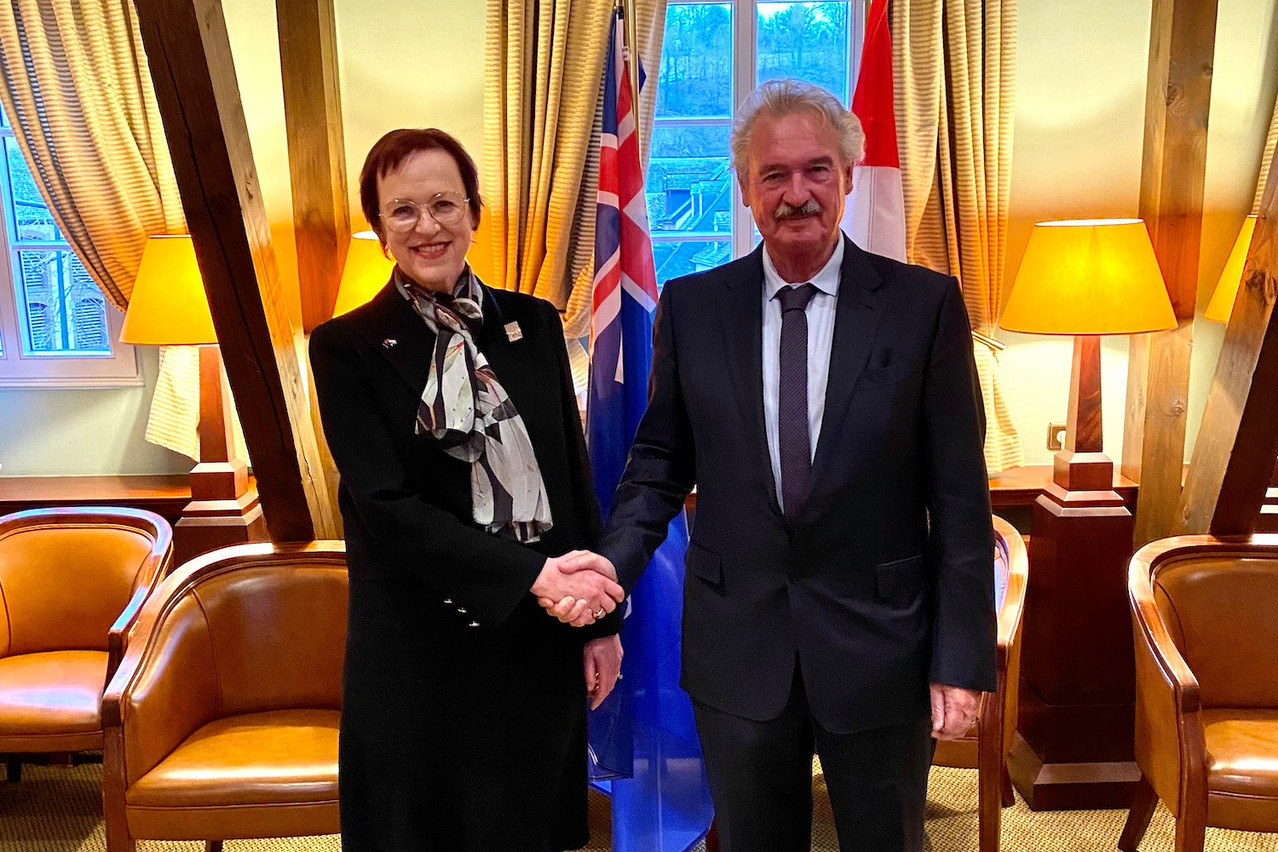The chamber on Tuesday hosted a panel discussion dedicated to the opportunities of an EU-Australia trade agreement for Luxembourg. The grand duchy already ranks as Australia’s seventh largest investor at $93bn in 2021, according to Australian government data.
Luxembourg is a “more significant partner than you would think,” said Australian ambassador Caroline Millar, who had travelled from Brussels for the event, in her opening remarks. In addition to being trading partners, she called both countries “like-minded democracies with shared values and rule-based order.”
Asselborn (LSAP), too, spoke of “long-standing friendly relations”, recalling a 2016 visit to the country. Services trade amounted to €300m in 2021, the minister said, adding that this was a “promising trend” but that there is “significant scope to further develop and deepen trade relations.”
Australia and Luxembourg share long histories of iron and steel, he said, with companies like ArcelorMittal and Paul Wurth already active Down Under. But there is room for cooperation in sectors such as space, research and innovation or finance, Asselborn said, adding that sustainability in these fields must be a “shared responsibility” in the fight against climate change.
Mobility and social security issues
Marc Serres, CEO of the Luxembourg Space Agency, said he is “confident” that space is one of the areas where both countries can cooperate further. Luxembourg has already signed a regional agreement with the New South Wales government in southeast Australia.
Australia and Luxembourg were both founding signatories of the US’ Artemis Accords, a programme to return humans to the moon by 2025, with the aim to develop a moon to Mars mission. “We found common ground there,” he said. “We will find many opportunities.”
Research programmes combining Australia’s mining expertise with space engineering, for example, could be of interest for Luxembourg’s space mining initiative or the over 70 space companies that have set up their offices in the country.
The University of Luxembourg’s Space Master could also be of interest to Australian students, he said, but visa issues remain hurdles to integrate overseas students.
This issue was also brought up by members of the audience, who said social security would be a big barrier to bringing over staff from Australia for companies wishing to establish themselves in Luxembourg.
Australia has signed social security agreements with 21 EU countries, but Luxembourg isn’t one of them and the free trade deal with the EU won’t change that. A tax treaty between both countries is also being negotiated separately.
Awareness raising
Australia and EU representatives have so far met for 14 rounds of talks, which David Brightling, a counsellor for trade at the embassy in Brussels, called “pretty good going.” The EU is Australia’s third-biggest trading partner and the FTA will provide a “clear and consistent framework” for doing business.
The agreement will need to be ratified by member states, who will also have to fill it with life.
The trade agreement “can deliver jobs, growth, investment,” said Marc Wagener of the Luxembourg Chamber of Commerce, however adding that the distance between both countries, the mutual recognition of standards, labour mobility and a simple lack of awareness will need to be overcome for the agreement to be a success.
The last trade mission to Australia is perhaps a decade ago, Wagener said, adding that small and medium-sized enterprises in particular must be aided to get to grips with the jargon of the FTA and what it means for them in reality.
“I see the investment opportunities,” said Rosa Villalobos, managing director at Macquarie Asset Management, an Australian firm with offices in Luxembourg. The grand duchy could be a gateway to Europe, she said, adding that awareness raising will be key. “It’s very easy to do business here.”
